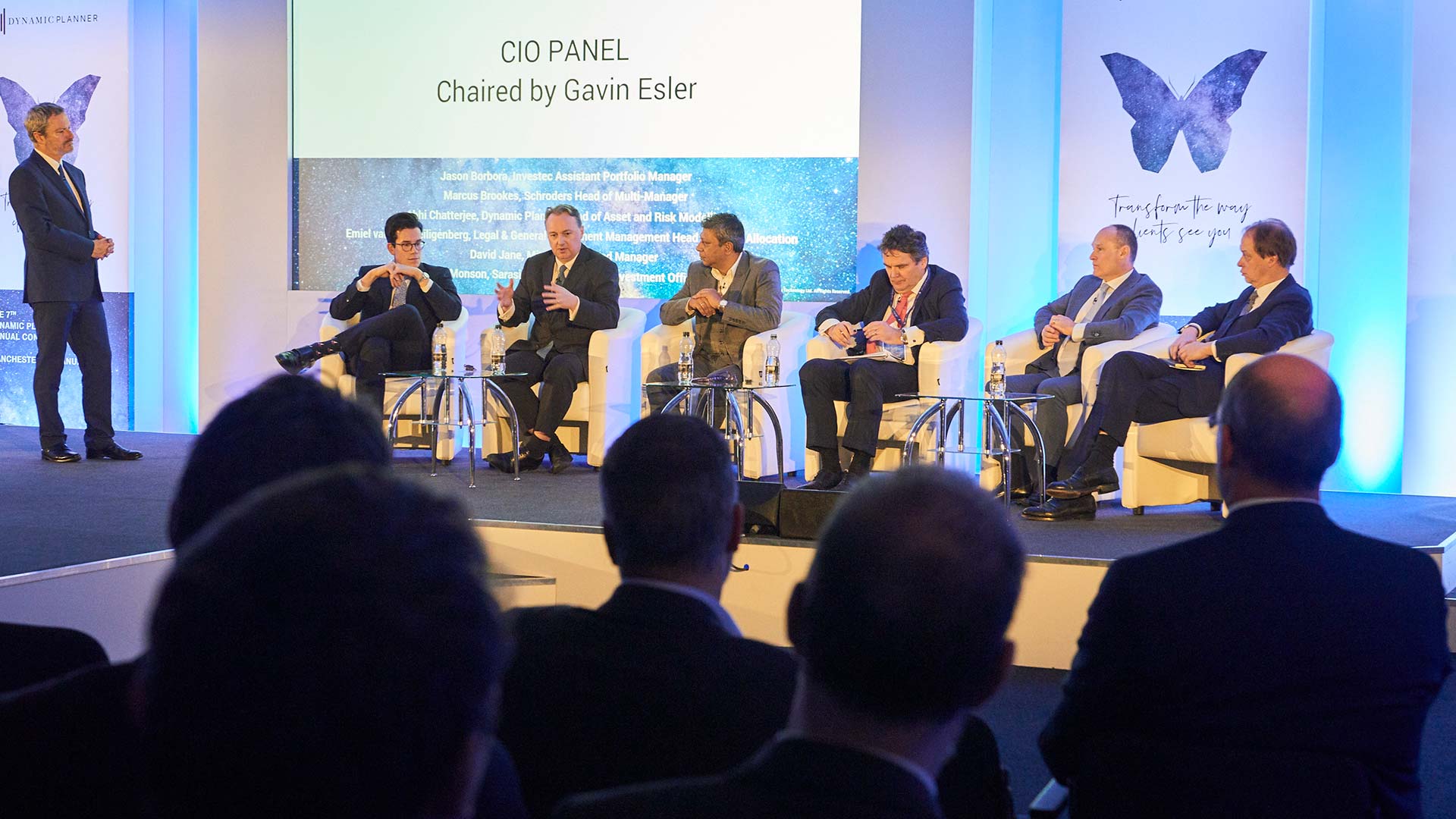Manchester

What will Brexit’s Final Impact be?
The Chief Investment Officer (CIO) Panel is always a much-anticipated highlight at the Dynamic Planner Annual Conference. This year in Manchester, journalist, broadcaster and host Gavin Esler expertly steered a fascinating and, as ever, fantastically well-informed debate which compellingly encompassed China, global economic slowdown, 2018 regrets, 2019 forecasts, the US Federal Reserve, Brexit and more […]

Manchester Conference Wows Audience
Wow. What a day. Our first ever Annual Conference in Manchester proved to be a fantastic occasion at the award-winning Manchester Central. The day was supported brilliantly by a great audience of financial services professionals from across the North West – and even further afield, with delegates flying in from Scotland for it. Upon arrival, […]